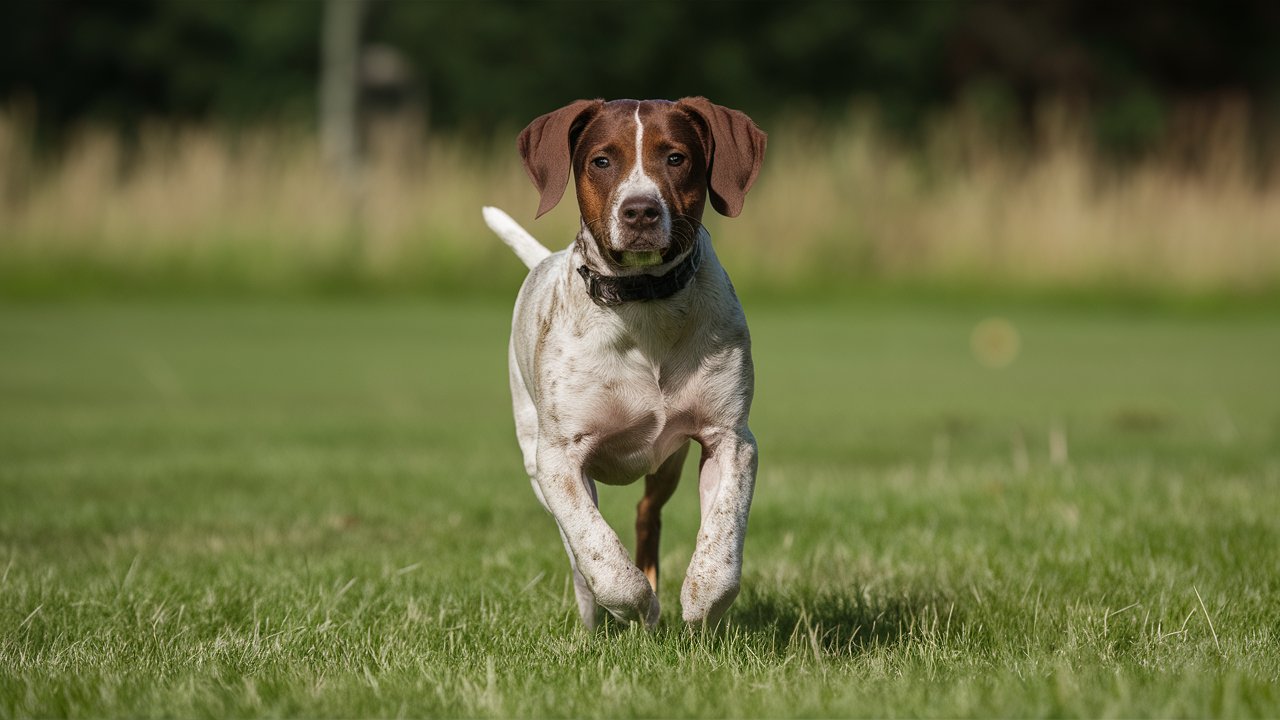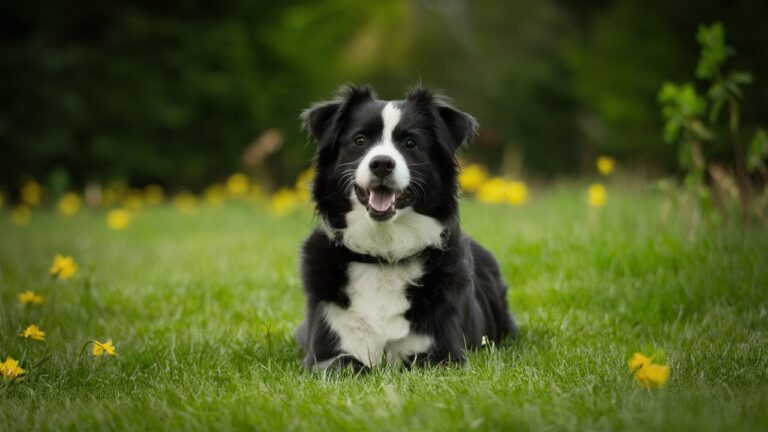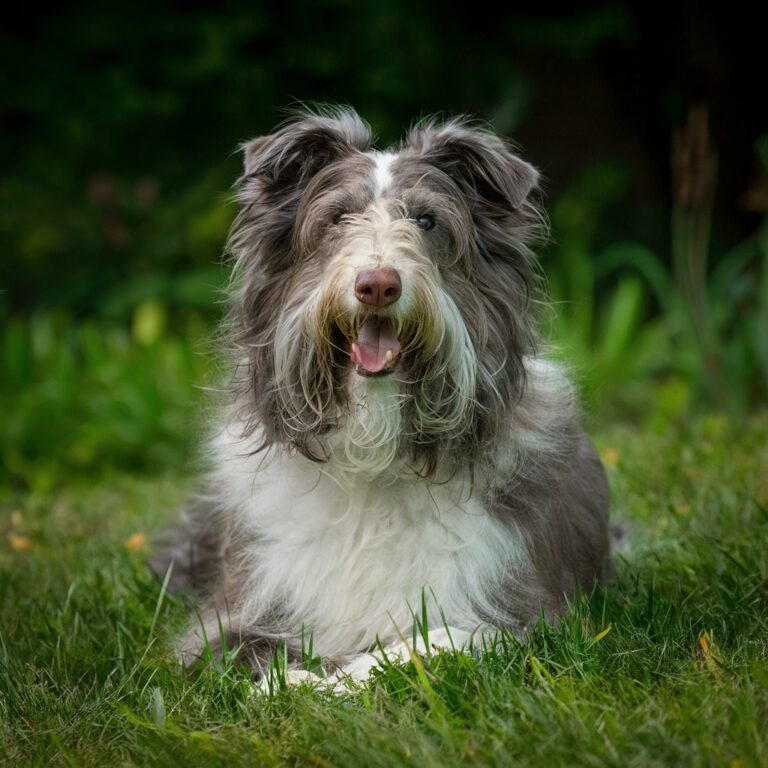The Portuguese Pointer: 100% Comprehensive Guide
The Portuguese Pointer, or Perdigueiro Português, is a distinguished breed known for its keen hunting abilities, affectionate nature, and deep historical roots. This article delves into the breed’s history, characteristics, care needs, training, and much more. Whether you’re considering adding a Portuguese Pointer to your family or simply interested in learning more about this remarkable breed, read on for a comprehensive exploration.
Historical Background

Origins and Ancestry
The Portuguese Pointer traces its origins back to the Iberian Peninsula, with historical references dating as far back as the 12th century. These dogs were initially bred for hunting, particularly for locating and pointing game birds. Their development was influenced by various other breeds brought to Portugal by traders and explorers, creating a versatile and robust hunting companion.
Evolution Over Centuries
Over the centuries, the Portuguese Pointer evolved from a nobleman’s hunting dog to a beloved family pet and working dog. During the Age of Exploration, Portuguese explorers and settlers took these dogs with them, spreading their lineage across the world. Despite this global spread, the breed remains relatively rare outside of its native Portugal.
Physical Characteristics
Appearance
Portuguese Pointers are medium-sized dogs, typically standing 20 to 23 inches tall at the shoulder and weighing between 35 and 60 pounds. They have a strong, athletic build with a short, dense coat that comes in various shades of yellow and brown. Their expressive eyes and alert demeanor give them a distinct and intelligent appearance.
Coat and Grooming
Their coat is short and requires minimal grooming, making them relatively low-maintenance in this regard. Regular brushing will keep their coat healthy and free of loose hairs, while occasional baths will help maintain their cleanliness. Their ears should be checked regularly for signs of infection, and their nails should be trimmed to prevent overgrowth.
Temperament and Behavior
Loyal and Affectionate
Portuguese Pointers are known for their loyalty and affectionate nature. They form strong bonds with their families and thrive on human interaction. This breed is typically good with children and can get along well with other pets, especially when socialized from a young age.
Energetic and Playful
These dogs have high energy levels and require plenty of exercise to stay happy and healthy. They enjoy activities such as running, hiking, and playing fetch. Without adequate physical and mental stimulation, they can become bored and potentially develop behavioral issues.
Intelligent and Trainable
Portuguese Pointers are intelligent and eager to please, making them relatively easy to train. Positive reinforcement techniques work best, as these dogs respond well to praise and rewards. Consistency and patience are key to successfully training a Portuguese Pointer.
Training and Socialization
Early Socialization
Socialization should begin early in a Portuguese Pointer’s life. Exposing them to various people, places, and experiences will help them develop into well-rounded adults. Puppy classes and regular outings can be beneficial in this regard.
Obedience Training
Basic obedience training is essential for Portuguese Pointers. Teaching commands such as sit, stay, and come can help establish a foundation for more advanced training. Due to their hunting background, they may have a strong prey drive, so recall training is particularly important.
Hunting and Sporting Activities
Given their heritage, Portuguese Pointers excel in hunting and sporting activities. They have a natural instinct for pointing and retrieving, making them excellent companions for hunters. Even if you’re not a hunter, engaging in activities that cater to their instincts can provide valuable mental and physical exercise.
Health and Wellness

Common Health Issues
Portuguese Pointers are generally healthy dogs, but like all breeds, they can be prone to certain health conditions. Some of the common health issues seen in this breed include:
- Hip Dysplasia: A genetic condition that affects the hip joints, potentially leading to arthritis.
- Elbow Dysplasia: Similar to hip dysplasia, this condition affects the elbow joints.
- Eye Conditions: Portuguese Pointers can be susceptible to various eye issues, including cataracts and progressive retinal atrophy.
Regular Vet Visits
Regular veterinary check-ups are crucial to ensure your Portuguese Pointer stays healthy. Vaccinations, dental care, and parasite prevention are essential components of their overall health regimen. Early detection of any health issues can lead to more effective treatment and better outcomes.
Nutrition
A balanced diet is vital for the health and well-being of Portuguese Pointers. High-quality commercial dog food, formulated for their size and activity level, is usually sufficient. Some owners prefer to prepare homemade meals or feed a raw diet, but it’s important to consult with a veterinarian to ensure all nutritional needs are met.
Personal Anecdotes: Living with a Portuguese Pointer
A Hunter’s Best Friend
I recall a story from a fellow dog enthusiast who took his Portuguese Pointer, Bella, on a hunting trip. Bella’s keen nose and unwavering focus made her an invaluable partner in the field. She pointed with precision and retrieved with enthusiasm, embodying the qualities that make this breed a favorite among hunters. Even after a long day of work, Bella would curl up by the fireplace, content and eager for affection.
Family Companion
On the other hand, my neighbor’s Portuguese Pointer, Max, exemplifies the breed’s versatility as a family companion. Max is gentle with their young children, always ready to play but equally happy to sit quietly and watch over them. His loyalty is evident in the way he follows his owners from room to room, never wanting to be too far from the action. Max’s ability to adapt to different family dynamics showcases the breed’s adaptable nature.
Portuguese Pointer in Modern Times
Breed Popularity and Recognition
In modern times, the Portuguese Pointer has seen a resurgence in popularity, particularly among hunters, dog sports enthusiasts, and families looking for loyal and active companions. While still considered a relatively rare breed outside of Portugal, its unique qualities and versatile nature have garnered increasing attention in various parts of the world.
Preservation and Promotion Efforts
In Portugal, the Portuguese Pointer is cherished as a national treasure. Efforts to preserve and promote the breed are robust, with dedicated breeding programs focused on maintaining the breed’s purity and enhancing its desirable traits. Breed clubs and organizations, such as the Clube do Perdigueiro Português, play a vital role in these efforts, organizing events, competitions, and educational programs to raise awareness and appreciation for the breed.
Global Spread and Adaptation
Though the breed remains relatively rare globally, Portuguese Pointers have made their way to different countries, where they are increasingly recognized for their versatility and strong work ethic. In the United States, the breed has gained recognition by the American Kennel Club (AKC) as part of their Foundation Stock Service, a step towards full recognition. Similarly, in the United Kingdom, the Kennel Club lists the Portuguese Pointer as an imported breed.
Participation in Dog Sports and Competitions
Portuguese Pointers excel in various dog sports and competitions, thanks to their intelligence, agility, and keen sense of smell. Activities such as agility, obedience, tracking, and field trials are perfect for showcasing the breed’s capabilities. These activities provide mental and physical stimulation, which are crucial for the well-being of this active and intelligent breed.
Agility: In agility competitions, Portuguese Pointers navigate obstacle courses with speed and precision, demonstrating their athleticism and trainability. Their natural agility and enthusiasm make them stand out in these events.
Obedience: Portuguese Pointers excel in obedience trials, where they perform a series of tasks and commands with accuracy and discipline. Their eagerness to please and quick learning abilities make them strong contenders in these competitions.
Tracking: Given their exceptional sense of smell, Portuguese Pointers are adept at tracking. This skill is showcased in tracking competitions, where dogs follow a scent trail and locate specific items or individuals.
Field Trials: Field trials are perhaps the most fitting arena for Portuguese Pointers to display their hunting prowess. These events simulate hunting conditions, allowing the dogs to demonstrate their pointing, retrieving, and overall hunting abilities.
The Portuguese Pointer as a Family Companion
While their hunting abilities remain a significant aspect of their identity, Portuguese Pointers have also proven to be exceptional family companions. Their affectionate and loyal nature, coupled with their playful and energetic disposition, make them well-suited for active families.
Adaptability to Family Life: Portuguese Pointers are known for their adaptability. They can thrive in various living environments, provided they receive adequate exercise and mental stimulation. Whether in a rural setting with plenty of space to roam or an urban environment with regular walks and playtime, they can adjust well to different lifestyles.
Interaction with Children and Other Pets: Portuguese Pointers are generally good with children, displaying patience and gentleness. They enjoy playing and can be protective of young family members. When properly socialized, they can also get along well with other pets, including dogs and cats.
Exercise and Mental Stimulation Needs: Due to their high energy levels and intelligence, Portuguese Pointers require regular exercise and mental stimulation. Daily walks, play sessions, and engaging activities such as puzzle toys or training exercises are essential to keep them happy and healthy.
Portuguese Pointer as Therapy and Service Dogs
The breed’s intelligence, trainability, and affectionate nature have also made Portuguese Pointers suitable candidates for therapy and service dog roles. Their ability to form strong bonds with humans and their calm demeanor in various situations allow them to provide comfort and assistance to those in need.
Therapy Dogs: Portuguese Pointers can be trained as therapy dogs, offering emotional support and companionship to individuals in hospitals, nursing homes, and other care facilities. Their gentle and friendly nature makes them well-suited for providing comfort and reducing stress.
Service Dogs: With the right training, Portuguese Pointers can also serve as service dogs, assisting individuals with disabilities. Their intelligence and eagerness to work make them capable of performing tasks such as guiding the visually impaired, alerting to medical conditions, or providing mobility assistance.
The Future of the Portuguese Pointer
The future of the Portuguese Pointer looks promising as breed enthusiasts and organizations continue to promote and preserve this remarkable breed. Increased awareness and appreciation for the breed’s unique qualities are likely to drive its popularity further.
Educational Efforts: Ongoing education about the breed’s characteristics, care needs, and history is crucial to ensure that prospective owners understand the responsibilities of owning a Portuguese Pointer. Breed clubs and organizations play a key role in these educational efforts.
Responsible Breeding: Responsible breeding practices are essential to maintaining the health and integrity of the Portuguese Pointer. Breeders committed to the breed’s well-being conduct health screenings, provide proper care for their dogs, and prioritize the breed’s overall health and temperament.
Community and Support: Building a community of Portuguese Pointer owners and enthusiasts can provide valuable support and resources. Online forums, social media groups, and local breed clubs offer opportunities for sharing experiences, advice, and information.
Finding a Portuguese Pointer

Reputable Breeders
When searching for a Portuguese Pointer, it’s crucial to choose a reputable breeder to ensure you get a healthy and well-socialized puppy. Here are some steps and tips to help you find a trustworthy breeder:
- Research and Recommendations:
- Start by researching breeders online and seeking recommendations from breed clubs, veterinarians, and fellow dog enthusiasts.
- Websites of national and regional Portuguese Pointer clubs often have breeder directories and resources.
- Visit the Breeder:
- Visiting the breeder’s facility is essential. Observe the living conditions of the dogs and puppies. A clean, safe, and nurturing environment is a good sign.
- Meet the puppies’ parents if possible. This can give you an idea of the temperament and health of your future puppy.
- Ask Questions:
- Inquire about the breeder’s experience with Portuguese Pointers. How long have they been breeding this particular breed? What motivates them to breed Portuguese Pointers?
- Ask about health testing. Reputable breeders will screen their breeding dogs for common genetic conditions like hip dysplasia and eye disorders. Request to see the health clearances for both parents.
- Puppy Socialization:
- Find out how the breeder socializes their puppies. Early socialization is crucial for developing a well-rounded adult dog. Puppies should be exposed to various sights, sounds, and experiences.
- Contracts and Guarantees:
- A reputable breeder will provide a written contract outlining the responsibilities of both the breeder and the buyer. This contract may include a health guarantee, spay/neuter agreement, and return policy if you can no longer care for the dog.
- Follow-Up Support:
- Good breeders are invested in the well-being of their puppies. They should be available for advice and support throughout the dog’s life.
Rescue and Adoption
Adopting a Portuguese Pointer from a rescue organization or breed-specific rescue can be a rewarding experience. Here are some tips for finding and adopting a Portuguese Pointer through rescue channels:
- Breed-Specific Rescues:
- Look for breed-specific rescue organizations dedicated to Portuguese Pointers. These rescues often have dogs of various ages and backgrounds looking for forever homes.
- Websites and social media pages of these rescues can provide information on available dogs and the adoption process.
- General Animal Shelters:
- Sometimes, Portuguese Pointers may end up in general animal shelters. Check with local shelters regularly and let them know you’re looking for a Portuguese Pointer.
- Websites like Petfinder and Adopt-a-Pet allow you to search for specific breeds in shelters and rescues near you.
- Adoption Process:
- The adoption process typically involves an application, interview, and home visit to ensure the dog is a good match for your home and lifestyle.
- Be prepared to answer questions about your experience with dogs, your living situation, and how you plan to care for and train the dog.
- Behavior and Health Assessments:
- Rescues often assess the behavior and health of their dogs before adoption. They may provide information about the dog’s temperament, training needs, and any health issues.
- Some rescues offer foster-to-adopt programs, allowing you to foster the dog for a trial period before finalizing the adoption.
- Costs and Donations:
- Adoption fees vary but generally cover the cost of spaying/neutering, vaccinations, and other veterinary care. These fees are usually lower than purchasing a puppy from a breeder.
- Consider making a donation to support the rescue organization, even if you adopt.
Making an Informed Decision
When deciding between a breeder and rescue, consider the following factors:
Purpose:
- If you’re looking for a dog with a specific pedigree, temperament, or potential for certain activities (e.g., hunting, dog sports), a reputable breeder may be the best option.
- If you’re open to adopting an older dog or providing a home to a dog in need, a rescue might be the right choice.
Age and Training:
- Puppies from breeders require significant time and effort for training and socialization.
- Adult dogs from rescues may already be house-trained and have some basic obedience training.
Health and History:
- Breeders can provide detailed health histories and genetic information about their puppies.
- Rescue dogs may come with unknown or mixed backgrounds, but many rescues perform thorough health and behavior assessments.
Availability:
- Portuguese Pointers from breeders may have waiting lists, especially for reputable ones.
- Rescues may have immediate availability, but finding a Portuguese Pointer specifically might take time.

Conclusion
The Portuguese Pointer is a breed with a rich history, versatile abilities, and a loving nature. Whether as a hunting companion, a family pet, or a participant in dog sports, this breed offers a unique combination of qualities that endear it to many. With proper care, training, and attention, a Portuguese Pointer can be a loyal and cherished member of your family.
This comprehensive guide highlights the breed’s characteristics, care needs, and more, offering valuable insights for current and prospective owners. By understanding and meeting the needs of this remarkable breed, you can ensure a fulfilling and rewarding relationship with your Portuguese Pointer.





